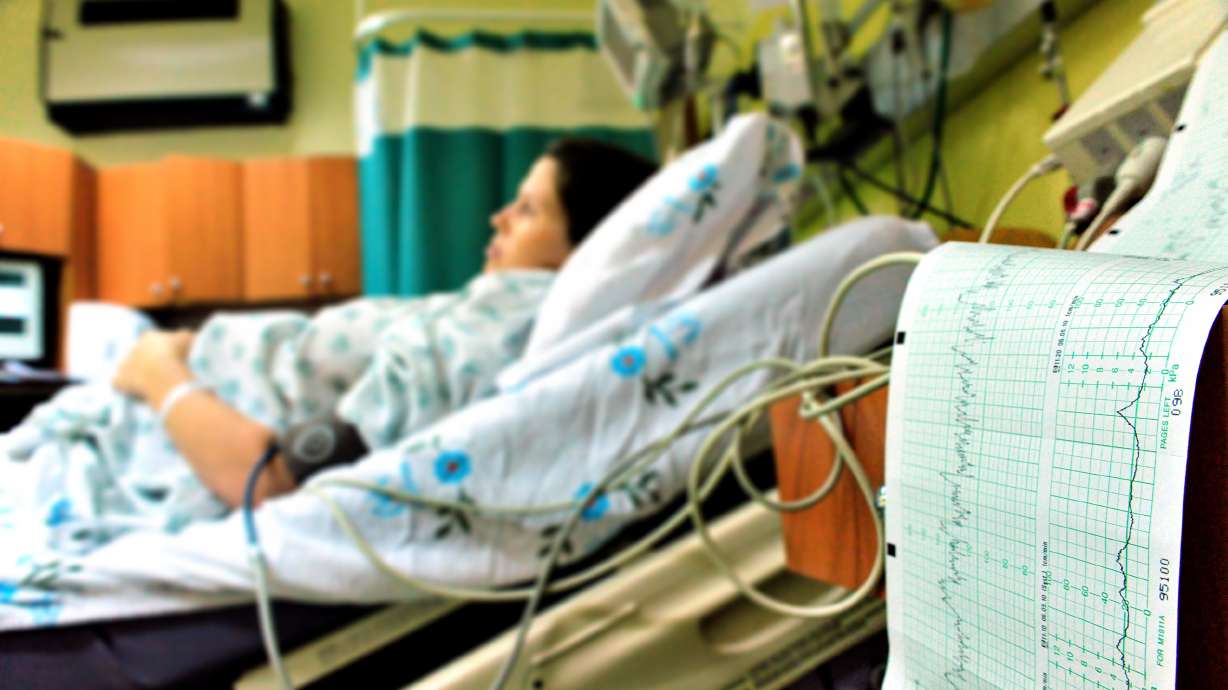Estimated read time: 2-3 minutes
This archived news story is available only for your personal, non-commercial use. Information in the story may be outdated or superseded by additional information. Reading or replaying the story in its archived form does not constitute a republication of the story.
SALT LAKE CITY — Local researchers recently found that inducing labor or changing birthing strategies during labor does not result in an increased risk of children developing autism spectrum disorder.
"Induction/augmentation of labor is an important strategy to minimize risk to mother and baby in some situations," said Dr. Erin Clark, an OB-GYN and principal investigator on the local study. "(This) study reassures both patients and physicians that induction or augmentation of labor does not appear to be associated with autism spectrum disorder risk."
Intermountain Healthcare, the University of Utah's Obstetrics and Gynecology Department and the U.'s psychiatry department collaborated on the study, using data from Utah birth certificates and a registry of autism cases in Utah to compare births that happened between 1998 and 2006.
"Children exposed to labor or augmentation did not have an increased likelihood of (autism spectrum disorder) after adjusting for important factors such as socioeconomic status, maternal health, pregnancy-related events and conditions, gender and year of birth," said Dr. Michael Varner, a study investigator who is also an OB-GYN with the U.
The team will present its findings at the annual meeting of the Society for Maternal-Fetal Medicine in San Diego.
Autism spectrum disorder, a mental condition present from early childhood that leads to difficulty learning, adapting in social situations and relationships, among other factors, has increased in prevalence over the last several decades, currently affecting one in 68 kids in the United States, according to the U.S. Centers for Disease Control and Prevention.
Utah's autism rate affects around 2 percent of the state's population, or one in 55 kids, based on 2010 data. Only New Jersey has a higher prevalence among states where numbers are being tracked, with one in 46 kids diagnosed there.
CDC statistics have shown that the disorder is almost five times more common among boys than girls: one in 42 boys versus one in 189 girls. The agency's study on autism also shows that white children are more likely to be identified as having autism spectrum disorder than are black or Hispanic children, but the CDC points out that may be due to a lack of access to diagnostic services among minority communities.
The increasing frequency in the occurrence of autism is driving researchers across the country, including in Utah, to identify potential risk factors. Environmental impacts are being studied, including labor induction, or starting labor with medication, and augmented labor, helping it along. The local study, however, debunks that theory.
Local researchers compared 2,547 children with autism spectrum disorder to 166,283 who do not to arrive at their conclusion.









